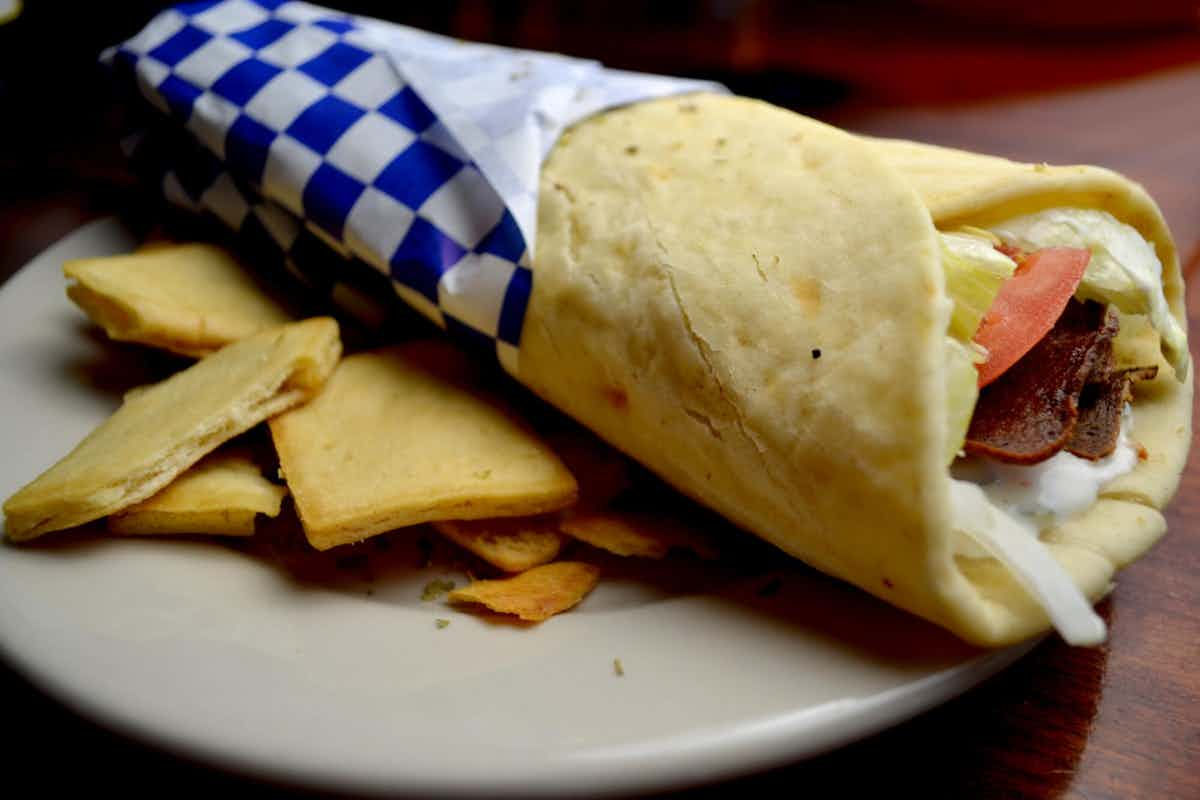
Many potential franchisees struggle with even the most basic steps of starting a fast food franchise. It can be especially daunting once the realities of the process come to the fore. Is there a simpler way to understand what all this will entail so that you can focus on what matters to you when running the business?
This article offers a simple, step-by-step guide to give you the support you need, as well as clear instructions on what you need to do to get started. So, read on to start discovering a breakdown of how to franchise a fast food business in bite-sized steps that are easier to digest. It’s simpler than jumping in all at once.
Assessing Your Financial Situation
Of all the steps you need to take, the most important may be the first. You need to have the assurance that you have the financial health to handle starting a fast food franchise business. It can have a significant toll, and it is important to ensure you can make the best possible income predictions.
Some of the key financial metrics you should consider before diving in include your:
Net worth. How much are your total assets worth minus your total liabilities? This is a good indicator of your current financial health in general.
Liquid assets. Consider your current accessible cash, as well as any other assets that you can quickly convert to cash. This is what you will often use to cover initial franchise fees outside of seeking a loan.
Debt-to-income ratio. Measure how much is going out compared to coming in. You can then assess how much debt you can handle.
Credit score. If applying for loans, you should have a realistic idea of how lenders view you. This way, you will know the amount of work you need to do for brokers to view you in a better light.
Future projections. If you are likely to make more or less money in moving forward, have documentation saying how much and why. Again, this will help you plan for long-term changes to your situation and assist in budgeting.
All this information together gives you a very accurate measure of both your capabilities as well as any financial risks you have. You can then use these data points when discussing how stable your situation is with franchise holders.
Identifying Your Goals
With the data you need to move forward, you can then set clear objectives for what you want out of starting a fast food franchise. Check to see if the whole process aligns with your financial plans and career goals.
You should also be wary of the amount of time and effort you will need to invest in a franchise. This is not, after all, a small project, and may have a significant impact on your lifestyle for many reasons. Be realistic with yourself, as well as others, as this will mean that you can avoid possible issues as you continue to work.
When you select a franchise holder, make sure to also start communicating with them about what you are about to do. You can discuss the support and resources they offer, helping you offset a lot of the work for the benefit of both parties. With the right company, you can likely start planning for long-term success with a focus on the sustainability of your business.
Research Fast Food Franchise Opportunities
Do not underestimate the amount of thorough research you will need to perform when choosing a franchise. With so many different potential companies to work with, the amount of data available may be overwhelming. Some of the key factors you should consider, for example, include:
- Brand reputation
- Market demand
- Available support
- Cost of franchising
- Franchising process
- Brand competition
Each of these may help you to get a solid handle on the best companies for you to work with. Remember, though, that your choice here will depend on your specific needs, too.
What to Look for in a Fast Food Franchise
For a fast food franchise specifically, you should look for whether it has both a strong brand identity and a proven business model. These two things often make or break such a service, especially if it has a strong core audience who enjoy it.
Such a situation allows for a little more forgiveness from customers when you are first starting up due to the trust earned by the franchisor. This gives you the freedom to iterate during your first few months while you work out the bugs in your process.
Often, a fast food franchise will also offer you help with marketing or logistical support. They may have ordering systems, relationships with delivery networks, or other opportunities. So, do the research necessary to learn who can give you the best opportunity to succeed.
Evaluating Market Demand in Your Target Area
When you get started, you will need to start a marketing push. Consider the demographics you have and the economic viability of appealing to that group. Think about whether this group will have enough demand for your fast food, giving you a solid foundation of income to move forward with.
Again, you should talk to the franchise holders in this case. Many of them will have information about a specific area’s franchise demand. This information will help you narrow down the best places to work with them and start the ball rolling.
Understanding Legal Considerations
It can often be difficult to understand the ins and outs of the legal aspects of what it means to start a franchise. You can expect to have several legal documents you will need to understand and then sign without being hurt by potential legal pitfalls. There will also be potential issues with local regulations you will need to be aware of.
We recommend working with a franchise attorney, as they will be able to help protect your interests. Regardless, here are a few key points you should understand.
Key Legal Terms You Need to Know
To help you get started, the following are useful to know:
Franchisor. This is the company that grants you the franchise license.
Franchisee. This would be you, the person who operates a business with the franchise.
Territorial rights. These are legal rights ensuring that no franchises may have too many locations in a specific area.
Termination and renewal. Conditions under which a franchise agreement can be ended or restarted.
Fees and royalties. The payments the franchisee must make to the franchisor. These are often in the form of a percentage of sales or revenue.
Navigating Complex Franchise Agreements
Some of the common key sections you should check in a franchise agreement include:
- Franchisee responsibilities and obligations
- Franchisor responsibilities and support
- Fees and financial commitments
- Operational guidelines and staff training
Every section of a legal document should receive scrutiny. However, the above areas tend to vary the most between different groups. As such, it should not be a surprise if you need to take care when reviewing each one.
In some cases, you may be able to negotiate more favorable terms. This is especially the case if local regulations prevent specific clauses from triggering. Though, you should make sure to know what you can offer in return.
Working With a Franchise Attorney
An attorney can help you protect your interests and ensure you follow both the letter and the spirit of any agreement. In many cases, you can book a free consultation with such a lawyer and, as such, learn about their experience and how much they can help you.
They can then review your documents, negotiate terms, and provide ongoing legal advice. Ask your attorney about the scope of the work they expect to do, though, as this may change depending on the individual.
Conducting Due Diligence
As you may have learned by now, setting up a franchise is not a simple task. There are many areas where you will need to perform thorough work to put yourself on par with other successful fast food franchises.
Analyzing the Franchise Disclosure Document (FDD)
When choosing a franchise, the FDD will give you a very detailed accounting of what the franchisor can offer you. It will detail their nature when it comes to several business practices.
Such a document will have a:
- The company background
- The franchisor’s litigation history
- Initial investment costs for working with them
- Support structure
- Their business management hierarchy
The FDD will also bring up several more questions that you might want to investigate further. Use the opportunity to learn as much as you can if possible.,
Exploring Financial Options
Once you have started working with a franchise, you should ensure you can financially handle the fees they request. If you are short, look into your options, which may include:
- Paying for the whole initial cost yourself
- Applying for a loan
- Digging into personal savings
- Investigating a small business loan
- Asking for help from peers
Each of these has its own benefits and drawbacks. As such, make sure to consider all factors, such as interest rates and repayment terms, before you confirm your plans.
Some franchises may offer help in this area, such as allowing you to borrow money from them or reducing the initial investment costs. This usually comes in exchange for a different royalty rate.
Factor all these things into your franchise business budget when you get started. This way, you stand the best chance of avoiding problems when it comes to staying afloat and moving forward. The last thing you want is to hamstring yourself by the very process you took to try to set up the business.
Setting Up the Franchise Location
When you have everything in order, it will be time to open the franchise location itself. To develop a successful launch process, you will also need to find a place to set up the business itself. You must also then make sure you have the staff to handle it.
Each of these has nuances you will need to navigate.
Choosing the Right Location
Consider the foot traffic in the area and how visible you are. A fast food restaurant needs to be visible and accessible, or people will go to another, closer location. Make sure that the right demographics for your target audience are also those who frequent the area, or you will only draw in the wrong people.
You can then work with commercial real estate agents to both find and secure the best premises. In many cases, your franchisor will also be able to help you with this, too, taking a lot of the work off your hands.
After this, work with an interior designer and the franchisor. They can ensure any internal construction fits both your needs as well as the demands of the brand.
In general, you want clear and accessible thoroughfares, as well as clear locations to put things like branding and marketing. Each of these will help you get the most out of the location and offer the highest ROI from the business.
Hiring and Training Staff
Hiring the right team can offer you a smooth operation and a high level of camaraderie. This will then reflect in the experience your customers have, giving you a reputation to be proud of.
As such, make sure your hiring process is strict enough to weed out those who may reflect poorly on you.
When you bring people in, try to foster a culture of improvement and positivity. With a well-oiled staff development program, you can put together a group of people who will further build up what you laid the first bricks for.
Join One of the Fastest-Growing Restaurant Franchises
The key steps to successfully starting a fast food franchise can be very involved, but lucky for you, Gyro Shack can help you every step of the way. With a proven business model and dynamic support, they will be invested in your success, too. Then, you can leverage their high-growth potential to get great results from your fast food location.
So, take a step towards franchise success today. Contact Gyro Shack and lay the foundations for your future fast food revolution.

